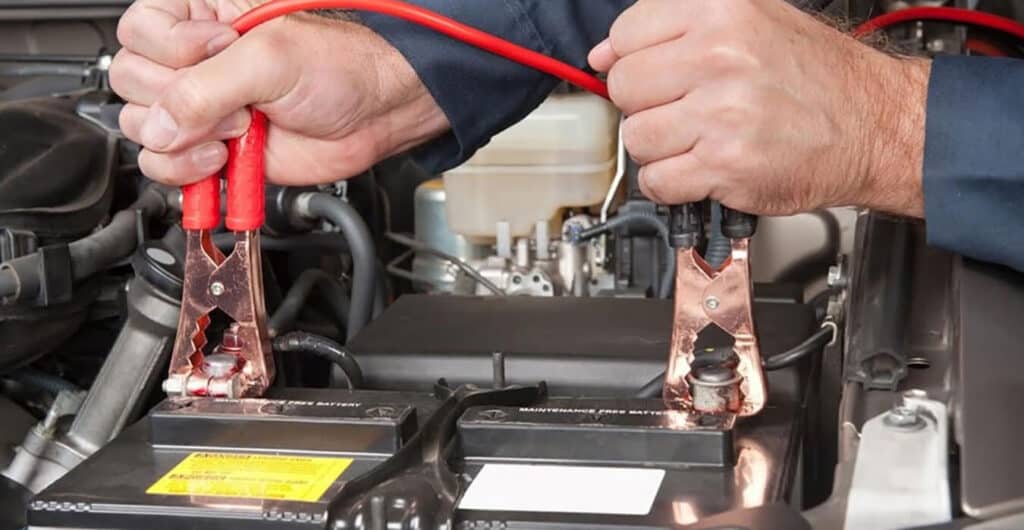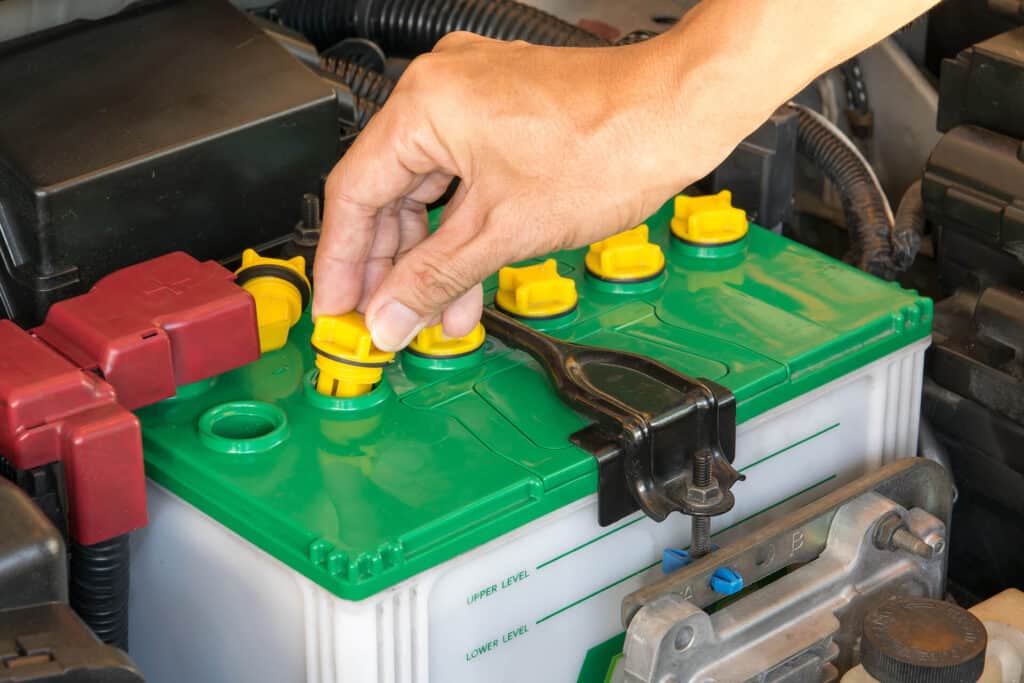Introduction: Understanding the Importance of Regular Battery Maintenance
How often have you given thought to your car battery’s health? Much like the beating heart of a living organism, the car battery ensures the life of your vehicle. Neglecting it might not cause instant problems, but the long-term damages can be severe. Let’s explore the complexities and consequences of battery neglect.
Idle Engines: Understanding the Impact of Unused Cars on Battery Health
How long can a car sit unused? It’s a question many Canadians, and indeed, car owners around the world ask, especially during extended cold seasons, vacations, or simply periods of not needing to drive. What many don’t realize is that leaving a car idle is not without its consequences. Here’s what can happen to your battery:
• Slow Drain: Car batteries gradually lose charge when not in use. Alarm systems, digital clocks, and other small drains add up over time.
• Complete Drain: If left for too long, a battery can completely lose its charge. A fully dead car battery may not be recharged if it’s been neglected for an extended period.
• Sulfation: This occurs when the battery is not fully charged, leading to the formation of lead sulfate crystals. It can severely hamper the performance of the battery and may lead to its failure.
• Cold Weather Impact: In colder climates, like Canada, the effect can be even more pronounced. The cold slows down the chemical reactions inside the battery, making the draining effect even worse.
• Prevention is Key: Regular starts and short drives, trickle chargers, or disconnecting the battery during long idle periods can prevent these issues. Services like Uchaincs can also provide regular checks if you know your car will be unused for an extended time.
• Recharging vs. Replacement: Can a fully dead car battery be recharged? Sometimes, but often, the damage is done, and a replacement is necessary, especially if sulfation has occurred.
Leaving your car idle may seem harmless, but it can take a toll on your battery’s health and your wallet. Understanding the impact and taking simple precautions can help you avoid unexpected problems and keep your car ready to go, even after prolonged periods of inactivity.

The Aftermath of Neglect: What Happens If You Don’t Replace Your Car Battery in Time
Ignoring the warning signs of a failing battery might not seem like a big deal at first. But what happens if you don’t replace your car battery? The answer is simple yet alarming:
• Breakdowns: Without warning, the car may fail to start, leaving you stranded.
• Impaired Vehicle Performance: Starters, alternators, and even the vehicle’s entire electrical system can suffer.
• Damage to Other Car Parts: A bad battery can cause wear on the alternator and other vital parts.
• Emergency Expenses: Unexpected replacements may include towing and other emergency service costs.
• A Little Attention Goes a Long Way: Regular checks and timely replacements can prevent these issues. Remember, Uchaincs is here for mobile battery checks and replacements.
Time vs Usage: How Often is a New Car Battery Needed and How Long It Typically Lasts
Do you need a new battery or just a charge? How often is a new car battery needed? Here’s what to consider:
• Typical Lifespan: A car battery usually lasts 3 to 5 years, but this can vary.
• Driving Habits: Frequent short trips prevent the battery from fully charging, shortening its life.
• Extreme Weather: Hot or cold weather can affect battery performance and lifespan.
• Maintenance and Charging: Regular checks and proper charging extend battery life.
• Know When to Replace: If charging doesn’t help, or the battery is nearing its typical lifespan, replacement is the wise choice.
Battery Longevity in Cold Climates: Assessing Car Battery Life in Canada
How long does a car battery last in Canada? Here’s what you need to know about car batteries in the Great White North:
• Impact of Cold: Canadian winters can significantly reduce battery capacity, leading to slow starts or failures.
• Type of Battery: Batteries designed for cold climates perform better.
• Regular Checks: Winter maintenance checks help identify potential issues.
• Proper Charging: Ensuring the battery is fully charged can prevent winter woes.
• Understanding Specific Needs: Knowing your car and battery type ensures you take the right precautions.
• Local Service Options: For Canadian drivers, Uchaincs offers tailored solutions to suit the local climate.
By being attentive to these factors, you can ensure that your car battery gives you reliable service. Whether it’s the biting Canadian cold or the general wear and tear of daily driving, a little care goes a long way.
Taking the Pulse: How to Check the Health of Your Car Battery
How do I check the health of my car battery? Regular inspections don’t need to be a daunting task. The process involves:
• Visual Inspection: Look for signs of corrosion, loose connections, or physical damage.
• Using a Voltmeter: A simple voltmeter test can provide accurate information about the charge level.
• Load Testing: Professional mechanics may perform this to evaluate how the battery performs under the usual load.
• Observing Warning Signs: Paying attention to slow engine cranks, low battery fluid levels, or a swelling battery case.
• Professional Assistance: Services like Uchaincs offer professional checks, providing peace of mind and accuracy.
Disconnected Yet Affected: The Impact of Leaving a Car Battery Disconnected
How long can you leave a car battery disconnected? Leaving it disconnected for extended periods can cause it to lose charge and affect its longevity. Here’s what you need to know:
• Potential Loss of Charge: Batteries gradually lose their charge when disconnected, which can lead to a full discharge.
• Impact on Longevity: Repeated full discharges can decrease the overall lifespan of the battery.
• Proper Storage: Storing the battery in a cool, dry place helps preserve its condition.
• Regular Inspection: Even when disconnected, periodic checks ensure it maintains an acceptable charge level.
• Understanding the Type of Battery: Different batteries have varying requirements; understanding your specific type is essential.

Conclusion: Paying Now or Paying Later: The Hidden Costs of Neglecting Your Car Battery
Can you ruin a car battery by not using it? Absolutely. Here’s why:
• Damages: Ignoring signs of a bad battery can lead to damages to other vehicle components.
• Hidden Costs: Regular maintenance might seem expensive, but neglect can lead to higher repair bills later.
• Loss of Convenience: An unexpected battery failure can leave you stranded at the most inconvenient times.
• Timely Replacements: Awareness of the symptoms and making timely replacements prevents unnecessary troubles.
• Professional Assistance: Trusted services like Uchaincs offer valuable support in maintaining your battery’s health, saving you from the “pay later” scenario.
Remember, when it comes to your car battery, a stitch in time saves nine. It’s a balance between the right care today and avoiding unnecessary expenses tomorrow.
If your car’s battery is showing signs of failure, don’t delay! Reach out to Uchaincs, a trusted mobile mechanic company in Canada, for prompt and efficient service. Experience the convenience and affordability of on-the-spot repairs and drive with confidence.
